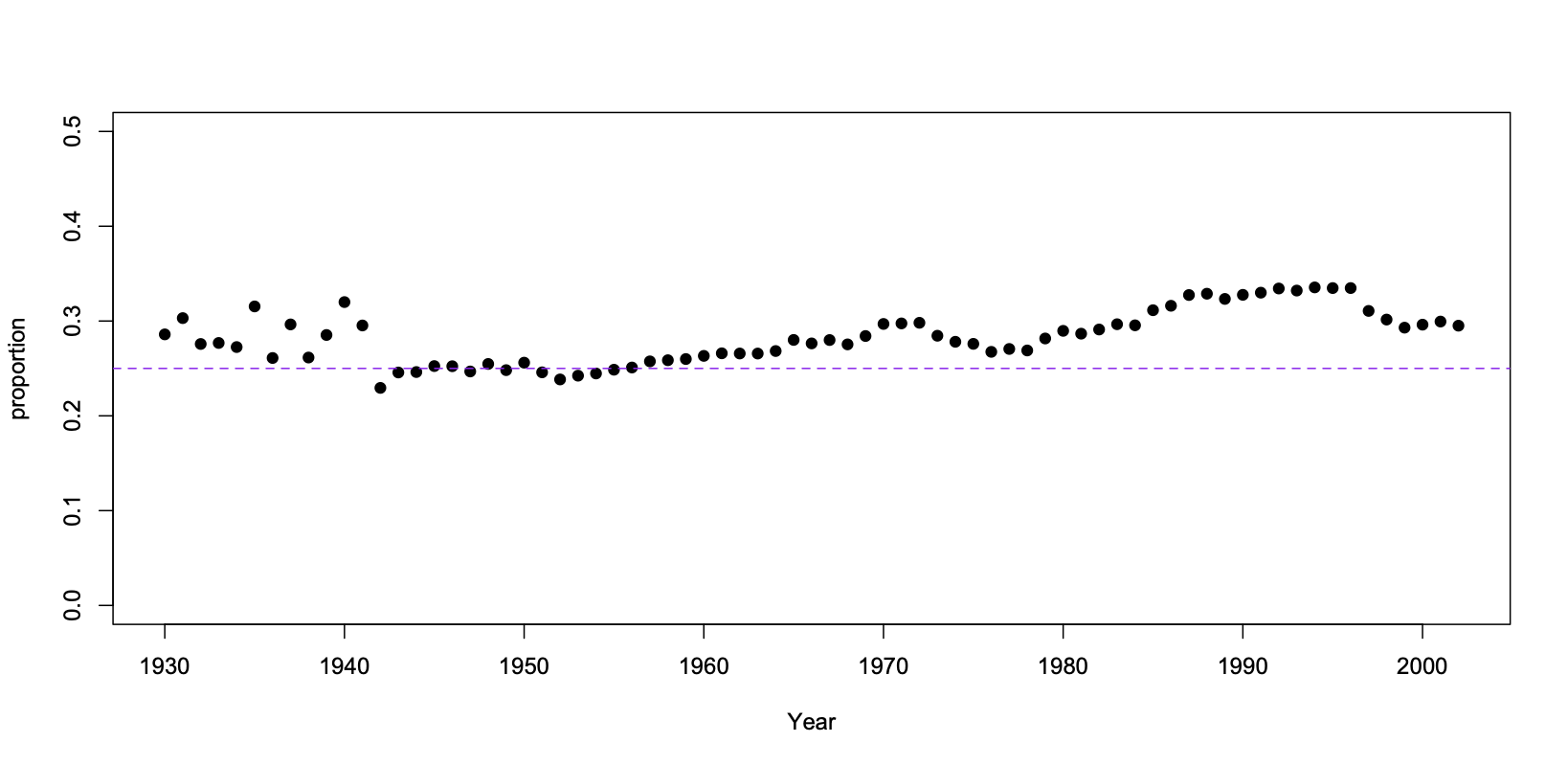How to beat Lotto
That is, how to gamble in a way that over a course of a year, gives you a higher chance at a larger payout than playing NZ Lotto each week and hoping for Division 1. We all know you can’t “beat Lotto” in the usual sense of improving your odds of winning.
In the ordinary Saturday Lotto, you pick 6 numbers out of 40, and if all 6 are correct (which they aren’t) you win $1 million. The chance of winning is 1 in 3838380 per ‘line’. Suppose you play the minimum of 4 lines, for $6, each week for a year. The chance of winning in a year is one in 18453.75. That is, on average you’d expect to win once in every 18453 years and 9 months.
Alternatively, suppose you save up the $6 per week, and then at the end of the year go to a casino and play roulette. Put it all on a single number. If you win, put it all on a single number again, and then if you win, put it all on a ‘double street’ of six numbers. Your chance of winning (in double-zero roulette) is 1 in 9145.33, and if you win you will make $2426112.
So, you get twice the chance of winning as you would have for Lotto division 1, and more than twice the payout. The expected return is 85%, much better than the 56% that NZ Lotteries returns (averaged over all its games, annual report). Does that mean it’s a good idea? No. Not even slightly. You have a 37 in 38 chance of turning up with $300 and losing it in a few minutes. If you don’t, you have a 37 in 38 chance of losing $7500 in the next few minutes, and if you don’t, you have about an 85% chance of losing more than quarter of a million dollars. This strategy makes your losses obvious, which makes gambling no fun. And you still only win once every 91 centuries.
Enjoyable gambling, including Lotto, is based on making your losses less obvious by masking them with small wins and stretching them out over time. Of course, that’s also what makes gambling, including Lotto, potentially addictive.

